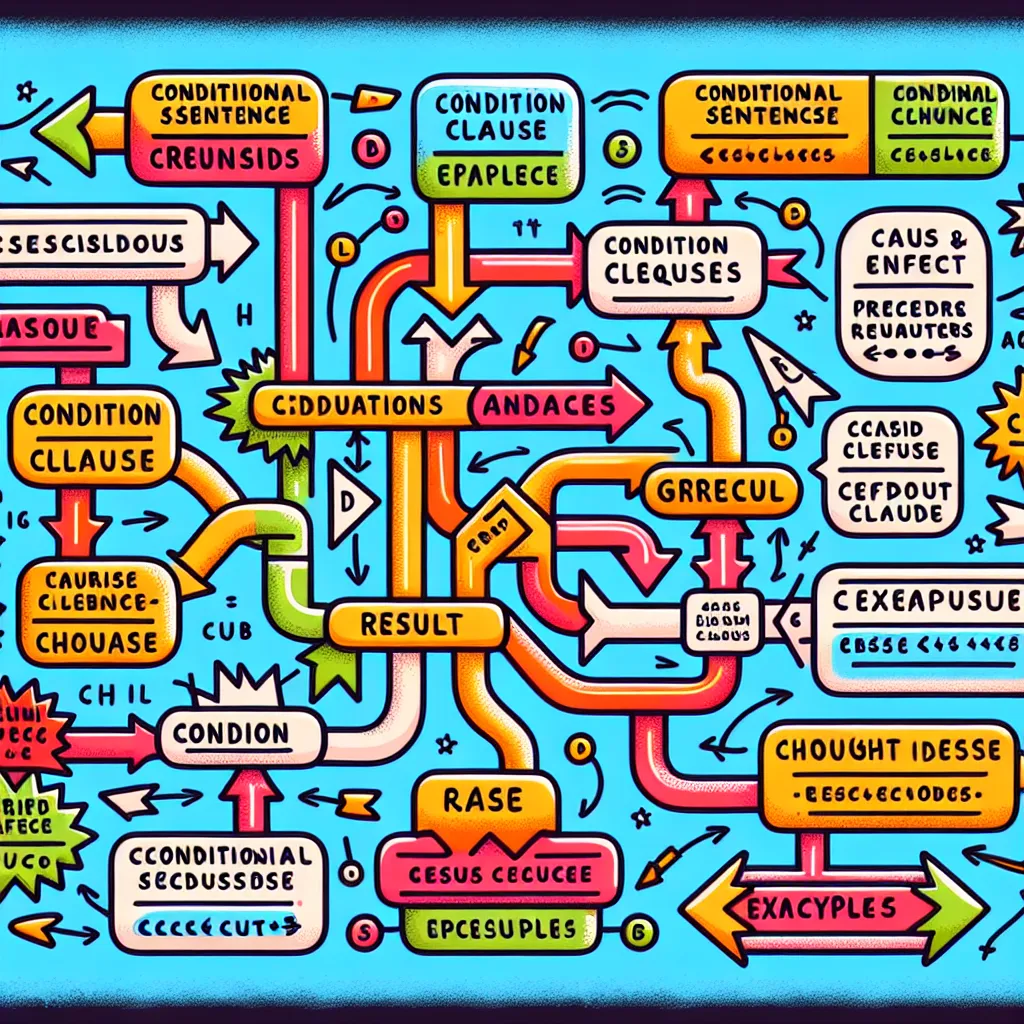Conditional sentences with implied results are a sophisticated grammatical structure that frequently appears in IELTS exams. These sentences allow speakers to express complex ideas concisely, making them valuable for achieving higher band scores. Let’s explore how to use this structure effectively in your IELTS preparation and exam.
Nội dung bài viết
- Understanding Conditional Sentences with Implied Results
- Grammar Formula and Structure
- 1. If + Past Perfect + Ellipsis
- 2. Should + Subject + Verb (base form) + Object
- 3. Were + Subject + to + Verb (base form)
- Application in IELTS Sections
- IELTS Writing
- IELTS Speaking
- Strategies for High Band Scores
- Common Mistakes to Avoid
- Conclusion
Understanding Conditional Sentences with Implied Results
Conditional sentences with implied results are a variation of standard conditional sentences. In these structures, the result clause is not explicitly stated but implied through context or tone. This form is often used to create more nuanced and sophisticated expressions, particularly useful in IELTS Writing and Speaking tasks.
Examples:
- “If only I had studied harder…” (Implied result: I would have performed better)
- “Should you need any assistance…” (Implied result: I will be happy to help)
- “Were I in your position…” (Implied result: I would act differently)
 Conditional Sentences with Implied Results
Conditional Sentences with Implied Results
Grammar Formula and Structure
The basic structure for conditional sentences with implied results is:
[Conditional clause] + [Ellipsis (…)]
or
[Inverted conditional structure]
Let’s break down each type:
1. If + Past Perfect + Ellipsis
This structure is used for unreal past situations:
- “If only I had known…”
- “If I had been there…”
2. Should + Subject + Verb (base form) + Object
Used for polite offers or instructions:
- “Should you require further information…”
- “Should the need arise…”
3. Were + Subject + to + Verb (base form)
Used for unlikely or hypothetical present/future situations:
- “Were I to win the lottery…”
- “Were you to ask me…”
Application in IELTS Sections
IELTS Writing
In IELTS Writing, especially Task 2 essays, using conditional sentences with implied results can demonstrate a high level of language proficiency.
Example:
“Were governments to invest more in renewable energy, the long-term benefits would be substantial. If only policymakers had realized this sooner…”
Analysis: This example uses two types of conditional sentences with implied results. The first uses the “Were + subject + to + verb” structure, implying a potential positive outcome. The second uses “If only + past perfect,” suggesting regret and implying missed opportunities.
IELTS Speaking
In the Speaking test, these structures can help you express complex ideas more naturally and fluently.
Example:
Examiner: “What would you do if you were the mayor of your city?”
Candidate: “Were I the mayor, I’d prioritize sustainable development. If only our current administration had focused more on this…”
Analysis: The candidate uses “Were I the mayor” to introduce a hypothetical scenario, followed by “If only + past perfect” to imply criticism of the current situation, showcasing advanced language use.
Strategies for High Band Scores
To achieve higher band scores in IELTS, consider these strategies:
- Variety: Mix different types of conditional structures with implied results.
- Context: Ensure the implied result is clear from the context.
- Appropriateness: Use these structures where they fit naturally, especially in more complex discussions.
Compare:
Band 6: “If the government spends more money on education, it will be good.”
Band 8: “Were the government to allocate more funds to education… The potential benefits are immense.”
The Band 8 example uses a more sophisticated structure and implies the result, demonstrating higher language proficiency.
Common Mistakes to Avoid
-
Incomplete thoughts: Ensure the implied result is clear from context.
Incorrect: “If only I had a car…” (without further context)
Correct: “If only I had a car… This commute wouldn’t be so tedious.” -
Overuse: Don’t force these structures into every sentence.
Unnatural: “Were I to eat breakfast, were I to go to work, were I to…”
Better: Mix with other structures for natural flow. -
Incorrect verb forms:
Incorrect: “Were I winning the lottery…”
Correct: “Were I to win the lottery…” -
Misusing “should”:
Incorrect: “Should I was rich…”
Correct: “Should I become rich…”
Conclusion
Mastering conditional sentences with implied results can significantly enhance your IELTS performance. Practice incorporating these structures into your writing and speaking, focusing on clarity and appropriate context. Remember, the key is not just using complex structures, but using them effectively to convey your ideas.
For further practice, try using these structures in topics like environmental issues or education challenges. These themes often appear in IELTS tests and provide excellent opportunities to showcase your grasp of sophisticated grammatical structures.


